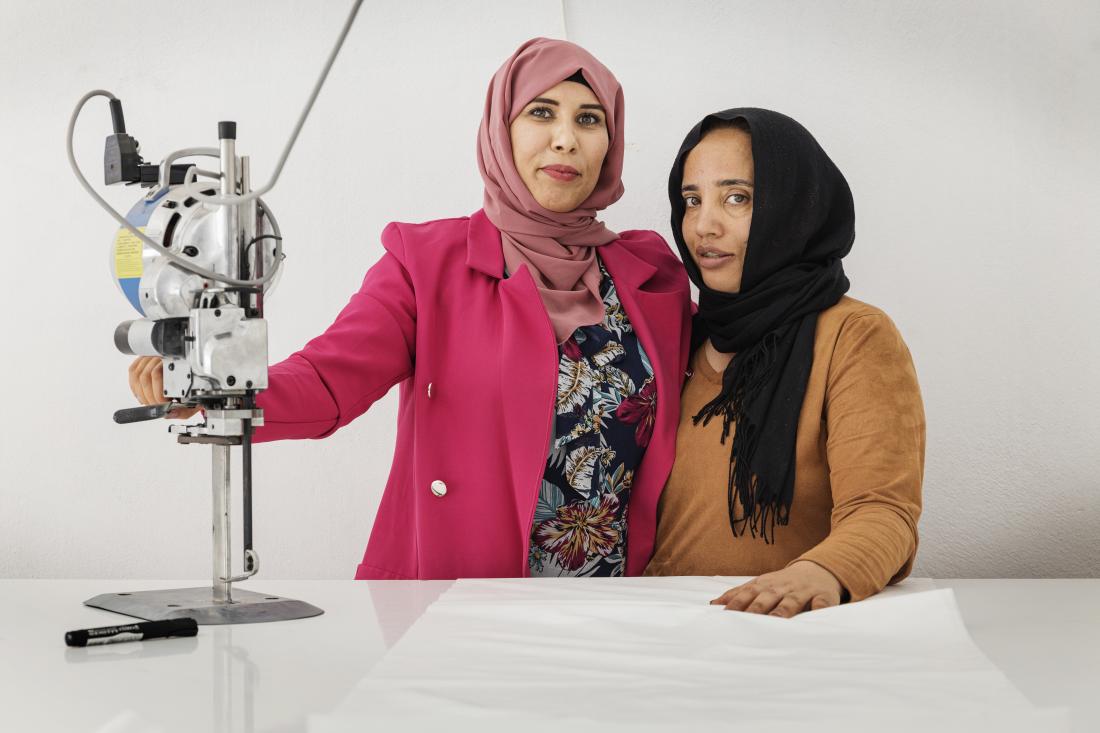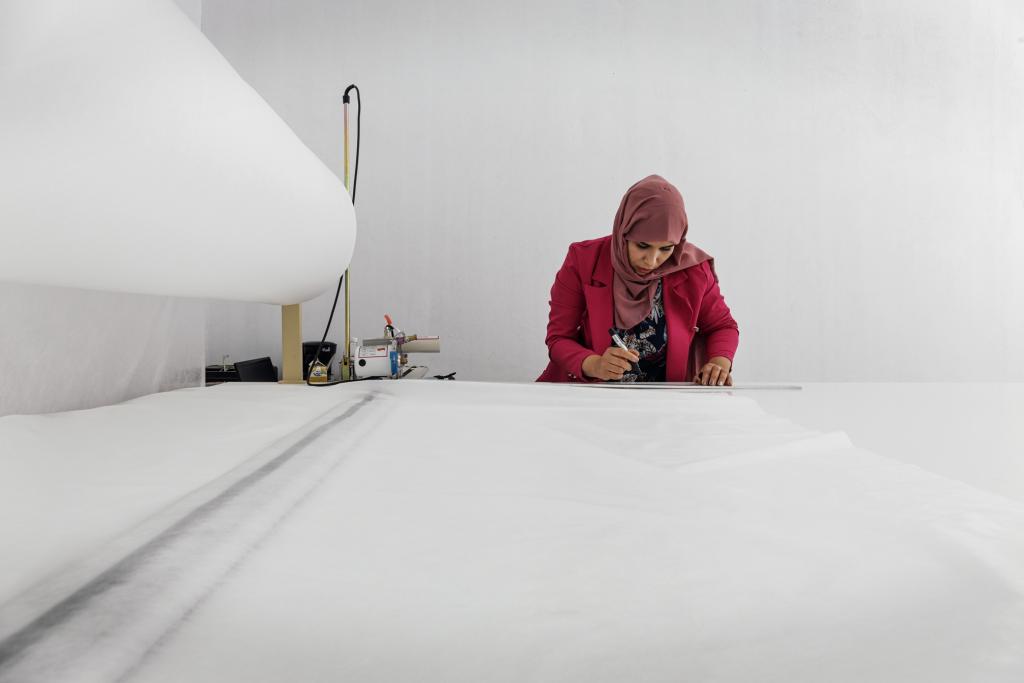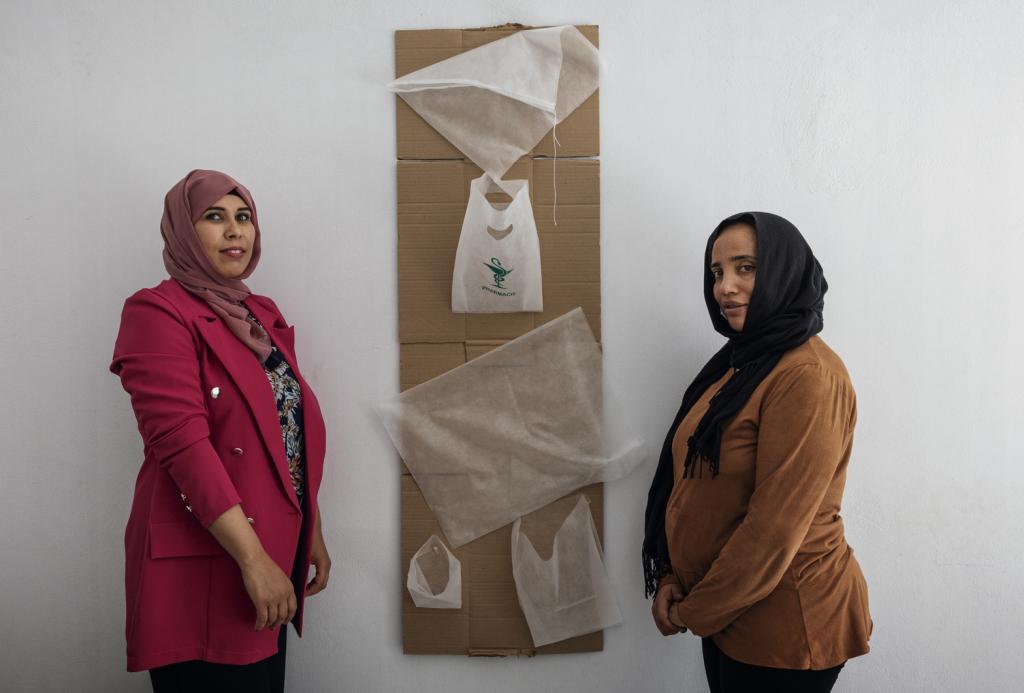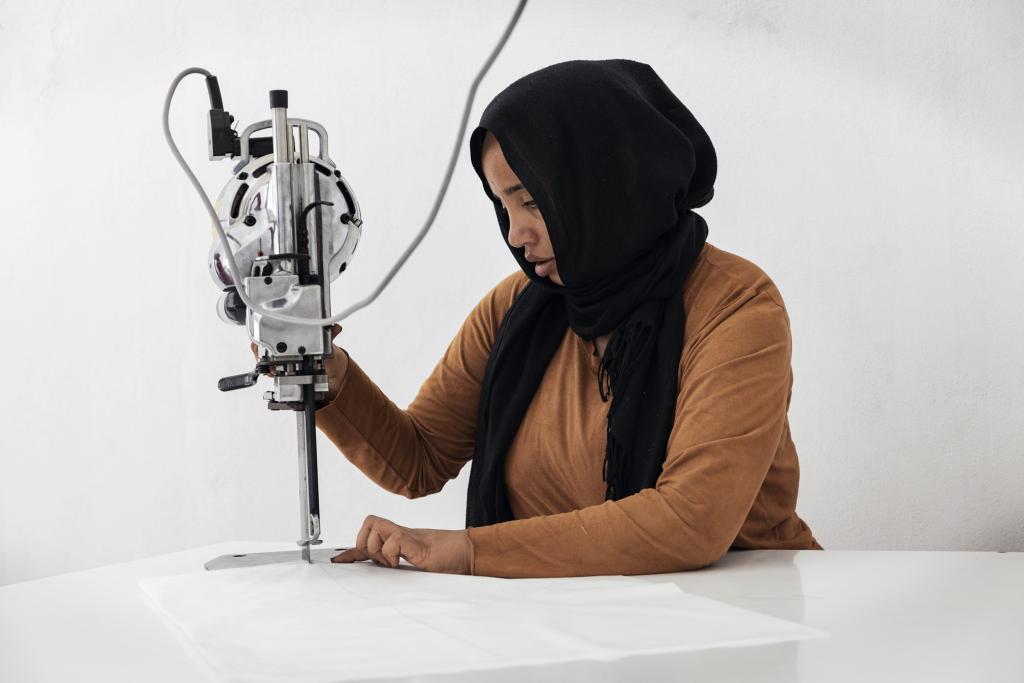The CLIMA project supports the production of agricultural textiles for a clean and green Tunisia: read interview with Roukaya Baya from the start-up SacAgri

SACAGRI, a start-up specialized in the production of technical textiles mainly for agricultural use, is one of the circular economy initiatives supported by the CLIMA project for greener Tunisia. This start-up produces and try to promote the use of textile sowing bags and sacks for protecting fruits from all types of pests as well as all weather conditions that can be potentially dangerous to crops (wind, sun, rain, hail, ultraviolet rays, etc.). These covers reduce possible diseases that could attack the fruit, including scab. The fabric of these 'envelopes' of different sizes is breathable, promotes the regulation of heat and humidity in the plant and good drainage. A simple methodology with zero environmental impact that would allow many Tunisian farmers to improve their harvests in terms of quality and quantity, and the young people in the start-up to have a business that would be of interest to the whole region. We spoke with Roukaya Baya, one of the founders of the start-up supported by the CLIMA project.
How did you come up with the idea of SacAgri?
I have a degree in computer science, a field far removed from agriculture, but I have lived in an agricultural environment where, unfortunately, a lot of plastic is used and where yields are not so good. Protecting the possibility of cultivating and having good crops on my father's land has always been a concern of my family and that is how I started thinking about an effective, sustainable and above all environmentally friendly solution in agriculture. In March 2022, the idea took shape after several researches on what raw material to use, what products to start with and what services to offer. SacAgri currently offers two items, sowing bags and protective covers, but we adapt our production to the needs of agriculture and the nature of the fruit or vegetable, and we are also opening up new production and marketing possibilities.

Photo credit: Giulia Giovagnoli for COSPE
What is the innovation of your start-up, compared to Tunisian competitors?
On the Tunisian market, until now, agricultural sacks have been made of plastic. Our company specializes in the production of biodegradable non-woven sacks intended mainly for the agricultural sector. In addition, we take care of the production and customization of the sacks (screen-printing of the logo on the sacks).
Why should farms use your products? What would be their advantages in environmental and economic terms?
Firstly, we aim to reduce the use of plastic in agriculture, which is good for everyone: producers and consumers. Secondly, our products are almost the same price as plastic bags, but in addition they are reusable and more efficient. So, farmers also make savings that they can reinvest in other activities. Finally, SacAgri's products allow better protection of vegetables and fruit and better ventilation, thus ensuring better quality of agricultural products.

Photo credit: Giulia Giovagnoli for COSPE
How is the Tunisian market responding?
Positioning oneself in the Tunisian market and building customer loyalty is the most difficult part, given the numerous competitors producing plastic bags. It is difficult to have a competitive price-performance ratio compared to the low price of plastic bags. Lastly, there is a cultural and habitual issue to consider. It is difficult to convince farmers to use fabric bags when for years they have only used plastic.
How many people do you currently employ?
In addition to myself and my partner, SacAgri hired a tailor, and we employ men and women workers to respond to specific needs and customer orders.

Photo credit: Giulia Giovagnoli for COSPE
How has the CLIMA project supported you?
The project gave us a grant to buy the machines and raw material to start the actual business. In addition, the programme has also enabled us to attend training courses and receive personalized assistance. CLIMA also supports us in marketing, in fact the project bought from us some sacs for the separated waste collection pilot initiative that has been currently implemented in a neighborhood of Mahhdia.
What are your hopes for the future?
The SacAgri team would like to see Tunisia as clean and green as it once was. We would like to further develop our activities, diversify our target group and conquer a segment of the national market, and at the same time share our goal and efforts with other local entities.

Photo credit: Giulia Giovagnoli for COSPE









